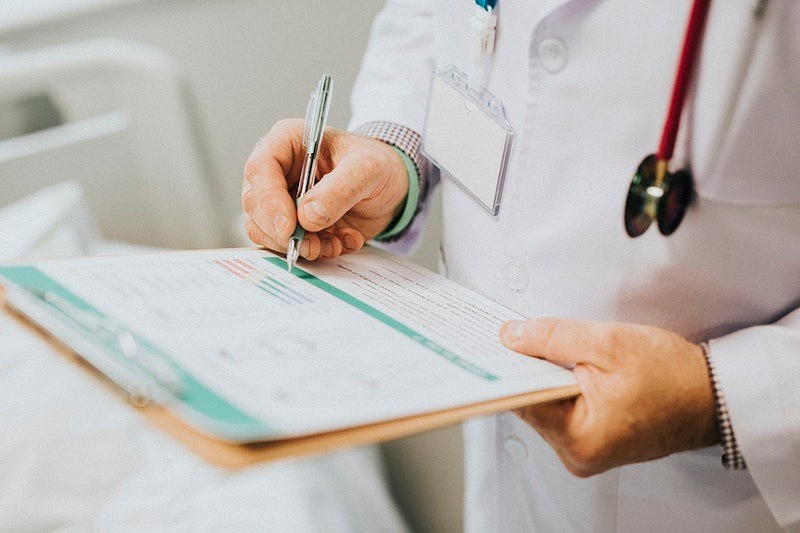Health Problems Related to Binge Drinking
Content updated on 01/16/24
Content reviewed by Karen Rubenstein, LMFT
Binge drinking has become popular in today’s society. Studies show that one out of every six adults in the U.S. reports binge drinking in the past month. The term binge drinking is often used to describe alcohol consumption by college students. However, binge drinking can impact anyone who has difficulty controlling how many drinks they consume in a specific time frame.
Alcohol consumed in high quantities during a short time frame can lead to both short-term and long-term health problems. Learning the signs of binge drinking along with the associated health risks can help determine when professional help is needed.
What Is Binge Drinking?
Binge drinking is defined as excessive alcohol consumption in a short amount of time, resulting in a blood alcohol concentration (BAC) of at least 0.08%. This resultant BAC is past the legal limit for driving. Binge drinking is defined as drinking five or more alcoholic drinks for men within a roughly two-hour span. For women, binge drinking is four or more alcoholic drinks over about two hours.
Binge drinking is not the same as alcoholism, but those who binge drink have a greater chance of becoming alcohol dependent. Knowing the signs of binge drinking can help reduce the risk of developing alcohol use disorder and health issues.
Signs of Binge Drinking
The signs of binge drinking may look different for everyone. Compared to other patterns of alcohol use, binge drinking may not always be consistent or frequent, therefore it can be harder to recognize. Between periods of drinking, an individual may not exhibit any signs of a problem. However, binge drinking can be a serious concern. Even if alcohol is being consumed in large amounts for a short time, it can result in both short and long-term health consequences. Binge drinking may look like the following:
- Drinking more frequently
- Drinking more than planned
- “Blacking out” or gaps in memory when drinking
- Drinking earlier in the day
- Being defensive about the amount consumed
- Engaging in dangerous behaviors while drinking
Although binge drinking is not considered alcoholism, it comes with its own set of problems. The short and long-term health problems associated with binge drinking can disrupt a person’s life if left unattended. If binge drinking is not addressed, it may lead to substance use disorder with its associated social and health risks.
Short-Term Health Problems from Binge Drinking
Uncontrolled alcohol use comes with immediate effects that can lead to more chronic conditions including:
- Slurred speech
- Blackouts or memory lapses
- Dehydration
- Upset stomach and diarrhea
- Headache
- Alcohol poisoning
- Loss of bladder control
Outside of health problems, binge drinking can cause decreased academic or work performance. Due to cognitive impairment, focusing on school or work can become difficult resulting in absences. Attendance can be impacted due to tardiness or missing class or work because of feeling ill after consuming large amounts of alcohol. Relationships can become damaged, which can lead to depression and anxiety.
Long-Term Health Problems from Binge Drinking
Excessive alcohol use and binge drinking can cause serious chronic conditions. With continuous alcohol use, these conditions can worsen over time. Long-term health risks include:
- Fertility issues
- Seizures
- Mental health problems such as depression and anxiety
- Malnutrition
- Anemia
- Weakening immune system
- Alcohol use disorders
Binge drinking is not interchangeable with alcoholism, but chronic binge drinking can lead to alcohol use disorder or dependence. By reducing alcohol consumption, the risks of developing serious short and long-term health conditions decrease. Professional help should always be sought when quitting excessive chronic alcohol use. Professional help should be sought as soon as possible to prevent further issues.
Seeking Help for Binge Drinking
Problems related to alcohol resulting from overconsumption or binge drinking, are one of the most serious public health concerns in the U.S. Although binge drinking is most commonly associated with younger adults and college students, over half of the binge drinkers are over the age of 30. When seeking treatment, it is important to consult with a professional to determine the severity of the problems and any associated health symptoms to develop an appropriate treatment plan.
There are plenty of treatment options for alcohol-related issues outside of alcohol addiction. If alcohol use has been heavy and chronic, an addiction treatment center that offers detox and inpatient rehabilitation programs may be needed. Full detox or intensive rehabilitation programs are not always needed depending on the severity of the person’s symptoms.
Behavioral treatments are used to change drinking behavior through therapy. Holistic treatment options like yoga, acupuncture and massage incorporate healing of the mind and body into treating alcohol issues.
Alcohol use doesn’t have to lead to a path of destruction. Cliffside Malibu specializes in alcohol and drug addiction treatment while offering a serene, luxurious facility to begin the recovery process. Programs include a detox program, both inpatient and outpatient treatment, and sober living home. Call Cliffside Malibu at (855) 403-5641 for more information about overcoming problems with alcohol.
